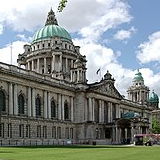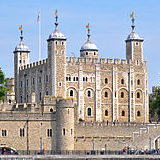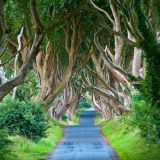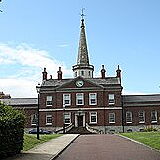
|
Northern Ireland United Kingdom Last Updated: 05/03/2024 |
|
Northern Ireland, situated in the northeast corner of the island of Ireland, is one of the four constituent countries of the United Kingdom. Northern Ireland is a region with a rich cultural heritage, stunning landscapes, and a complex history that continues to shape its identity and development within the United Kingdom. At the 2021 census, its population was 1,903,175. | |
| - Geography: Northern Ireland shares a border with the Republic of Ireland to the south and west and is surrounded by the Atlantic Ocean to the north and east. Its landscape includes rolling green countryside, rugged coastline, and stunning natural landmarks such as the Giant's Causeway. - History: Northern Ireland has a complex and often troubled history, particularly regarding its relationship with the Republic of Ireland and the issue of Irish nationalism versus unionism. The Troubles, a period of ethno-political conflict from the late 1960s to the Good Friday Agreement in 1998, had a profound impact on the region. - Culture: Northern Ireland's culture is influenced by both Irish and British traditions. It has a rich literary heritage, with writers such as Seamus Heaney and C.S. Lewis hailing from the region. Traditional music and dance are also significant cultural elements, with events like the Fleadh Cheoil attracting musicians and visitors from across Ireland and beyond. - Politics: Northern Ireland has its own devolved government, the Northern Ireland Executive, which shares power between unionist and nationalist parties under the terms of the Good Friday Agreement. The government has authority over areas such as education, health, and transportation, while certain matters, such as foreign affairs and defense, remain the responsibility of the UK government. - Economy: Northern Ireland's economy has traditionally been based on agriculture, manufacturing, and shipbuilding. In recent years, sectors such as tourism, technology, and financial services have also become increasingly important. - Religion: Religion plays a significant role in Northern Irish society, with a majority of the population identifying as either Protestant or Catholic. This religious divide has often intersected with political and cultural identities, contributing to the region's complex history. - Peace Process: The Good Friday Agreement, signed in 1998, brought an end to the violence of the Troubles and established a framework for power-sharing and reconciliation in Northern Ireland. While the peace process has made significant strides, challenges remain in achieving full reconciliation and addressing issues such as sectarianism and socio-economic disparities. | |
Website Wikipedia Facebook
United Kingdom » Northern Ireland
Place » City

|
United Kingdom Place » City The United Kingdom of Great Britain and Northern Ireland, commonly known as the United Kingdom (UK) or Britain is a sovereign country in north-western Europe. The total area of the United Kingdom is 93,628 square miles (242,500 km2), with an estimated population in 2020 of over 67 million. London is the capital and largest city of England and the United Kingdom. London's 2018 population was 8,961,989. 542 views 💖 1United Kingdom |

|
The Dark Hedges Place » Outdoors The Dark Hedges is one of the most photographed natural phenomena in Northern Ireland and a popular attraction for tourists from across the world. Over the past 300 years or so, the Beech trees guarding either side of the lane have reached up and across to each other, becoming heavily intertwined to create a natural arched tunnel where shadow and light plays through entwined branches. 451 views 💖 11Bregagh Rd, Ballymoney BT53 8TT, United Kingdom |

|
Belfast Place » City Belfast, the capital and largest city of Northern Ireland, is a vibrant and historically significant urban center. Belfast is a city of contrasts, blending a rich cultural heritage with modern innovation and development. Its resilience and determination to move forward while honoring its past make it a fascinating and dynamic place to visit and live. Its population was 345,418 in 2021. 67 views 💖 1Northern Ireland |
Write a Review :
Northern Ireland
|
|